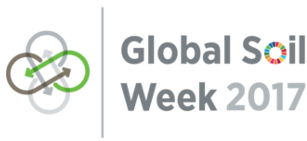AGORA partners decide to take the road less traveled in East Africa
Small holder farmers of Tanzania and Malawi, like in many countries on the African continent face the challenge of producing a livelihood on increasingly degraded land. The effects of climate change in the form of drought and other irregular weather patterns are already a reality in the region and exacerbate land degradation. A broader adoption of sustainable land management (SLM) practices is necessary to counter the ecosystem degradation and improve the livelihoods of small holders. At the same time, many households lack labor, capital or other resources to carry out these techniques, to prevent further degradation of their land and preserve their livelihoods. Over the past decades much research has been conducted in the area of sustainable land management. However, many findings have not contributed to a sustained implementation on the ground and have thus not been of substantial benefit for the local people.

Participants draw network maps of land management stakeholders and indicate their respective influence in Lushoto, Tanzania (IASS/Judith Rosendahl)
The AGORA (Acting Together Now for Pro-Poor Strategies against Soil and Land Degradation) project partners reached a consensus at a recent meeting in Lilongwe, Malawi, on how a different and transdisciplinary project path could look. The AGORA project explores the drivers of land degradation in Tanzania and Malawi and the political, social, and economic constraints to the adoption of SLM practices. The question of how to improve implementation and planning of SLM will be achieved through an approach of knowledge co-generation, meaning through the inclusion of perspectives of multiple stakeholders. The interdisciplinary AGORA team includes international and national research institutions (International Center for Tropical Agriculture (CIAT); Institute for Advanced Sustainability Studies (IASS), Germany; Selian Agricultural Research Institute (SARI), Tanzania; Lilongwe University of Agriculture & Natural Resources (LUANAR), Malawi) and the NGO Total Land Care (TLC) based in Malawi. Over the past two years, the AGORA team has gathered data on the biophysical, social and economic aspects of land degradation in two districts of Tanzania and Malawi. Land users and other stakeholders were strongly engaged in the data collection process through participatory research methods. One example of this is participatory mapping in which communities, together with researchers, map the resources on a larger landscape scale, as well as their access to these resources, and how this has changed over time. The AGORA team discussed recently in Lilongwe how the research findings from the first phase of the project could be of best use to the farmers on the ground. The project sets out now to engage with stakeholders in new ways to improve the implementation of SLM on the basis of these research findings.

Drawing social networks of land management stakeholders from the community´s perspective in Ntcheu, Malawi (IASS/Judith Rosendahl)
In addition to a broad and targeted dissemination of research findings, partners agreed to engage stakeholders in a transdisciplinary process to improve sustainable land management in the two sites. A central objective of the AGORA meeting was to determine the issues and stakeholders in this process.
Research findings in Lushoto (Tanzania) revealed that both non-governmental as well as governmental stakeholders at the district level see the need for a common district strategy to support sustainable land management. AGORA will present its findings to the stakeholders and encourage the elaboration of a joint strategy. A coordination of the various actors would allow for better planning of support activities, learn from each other´s experiences and develop an institutional memory. “Using the existing and powerful structures to address problems and barriers is a sustainable route to change. AGORA´s transdisciplinary approach to embark on a process with the district is very meaningful” said Focus Muhogora, a researcher at the Selian Agricultural Research Institute (SARI).
“We want to replicate AGORA´s approach of strong community engagement. As an organization we need to understand the specific and changing needs of communities to design our activities accordingly”, says Haig Sawasawa, project manager with the influential Malawian NGO Total Land Care, which works nationwide and is represented in all relevant bodies at the national and district level. TLC and other AGORA partners have decided to jointly develop a training course for TLC staff which should allow the organization to improve the design of their activities. The approach and the training will subsequently be promoted within TLC´s network.
The approach of engaging stakeholders in a transdisciplinary dialogue process is not the norm in research of sustainable land management. An important output of the meeting was the consensus within the AGORA team in support of this approach to continue on this promising yet indeed less traveled path and to conceive it in more detail.

